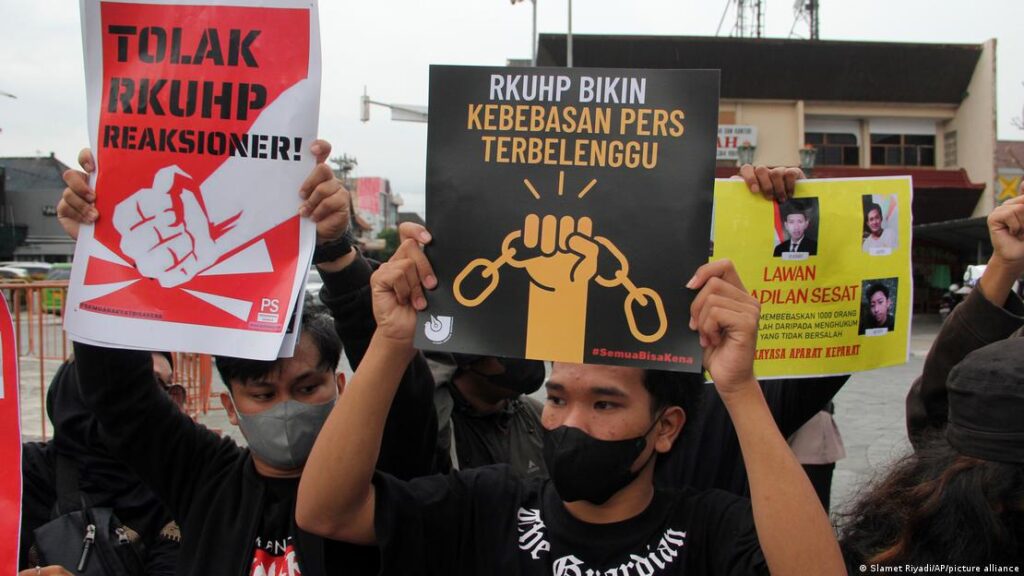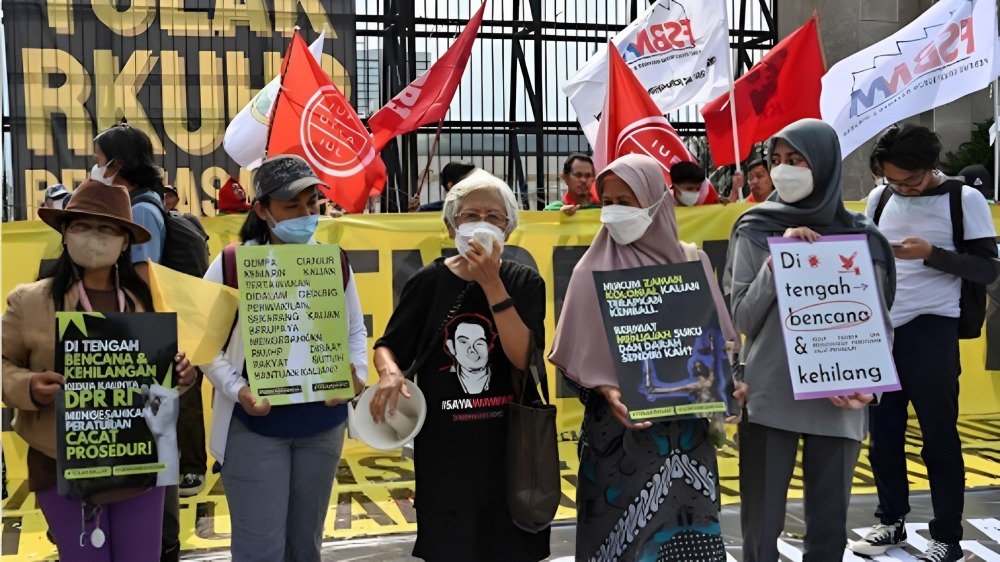Indonesia Outlaws Sex Outside Marriage: What This Means for LGBTQ+ Citizens
Indonesia effectively banned LGBTQ+ relationships when parliament passed a new criminal code that criminalises sex outside marriage
On December 9th 2022, news broke internationally that parliament in Indonesia had passed new legislation outlawing sex outside marriage. The legislation, passed on the 6th of the same month with support from all political parties, states that only a spouse, parent or child can report their family member for engaging in pre-marital sex, with a punishment of up to 1 year in prison or a hefty fine.
Additionally, an adjacent law was put forward that forbids cohabitation outside of marriage, with similar levels of punishment if found guilty. Perhaps unsurprisingly, the legislation sparked uproar, with protests across the country’s capital, Jakarta. But it didn’t stop there, high-up officials such as Indonesia’s Amnesty International executive director Usman Hamid described it as “appalling” and a “significant blow” to the country’s progress on human rights. Specifically, Hamid mulled over the unfortunate effect such legislation may have on tourism, as it also applies to those merely visiting the country, “Criminalising the personal decision of individuals would loom large within the decision matrix of many companies determining whether to invest in Indonesia.”
However, authorities insist that, despite the law technically applying to both tourists and locals, the marital status of foreign visitors will not be checked.
The impact of the legislation obviously does not only affect tourists but perhaps is the most consequential for a sub-group of Indonesian citizens, the country’s LGBTQ+ community, despite homosexuality being technically legal in the country. Extramarital sex criminalisation also targets the LGBTQ+ community because, unfortunately, same-sex marriage is still illegal in Indonesia. The new laws could also curtail freedom of expression.

Same-sex couples, therefore, cannot live together or engage in sex acts legally, as cohabitation outside of marriage is also an illegal practice, meaning there are no legal or safe, viable routes for LGBTQ+ couples to live together and develop a domestic lifestyle. “Before the new criminal code, it was already bad. People can be searched in their private residences. Although it is not systematic, it can happen”, says Dede Oetomo an activist within an LGBTQ+ rights group. And, because of the legislation, this fear will only be built upon.
This is a sentiment shared by Andreas Harsono from Human Rights Watch who suggests that LGBTQ+ citizens are “living in fear” in a society that is becoming “more and more conservative…If they are reported by a member of family, their life can be ruined.” And, it is important to emphasise that the adjective “ruined” is not far-fetched. There are multiple incidents of punishment for LGBTQ+ citizens in Indonesia before such legislation was ever put forward. For example, in 2022 two Indonesian soldiers were given a seven-month jail term each for engaging in gay sex, which the military deemed entirely “inappropriate.” This is perhaps not surprising, as homosexuality is, in fact, illegal within the military.
However, it is important to at least acknowledge such incidents, specifically when further legislation has been introduced in order to punish homosexual citizens of Indonesia – It is not just likely that LGBTQ+ citizens of Indonesia will suffer at the hands of the extramarital ban, but it is expected and harsh punishment is a very real possibility.
Comments are closed.



